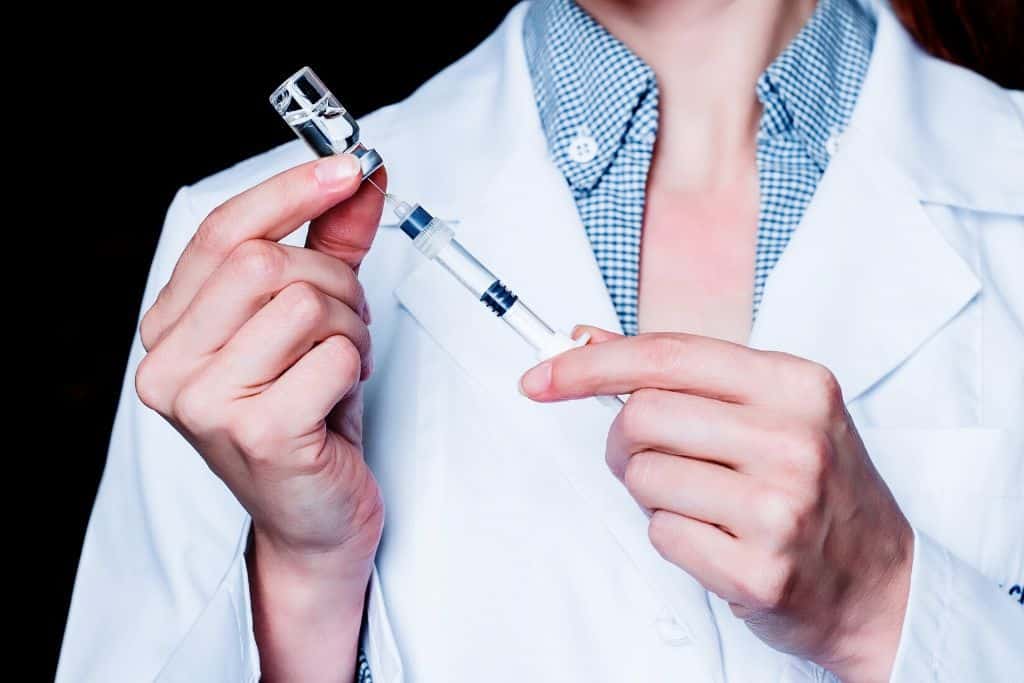What is Alcohol Use Disorder (AUD)?
Alcohol Use Disorder, or AUD, is a medical diagnosis that describes a problematic pattern of alcohol use that negatively impacts a person’s life. Symptoms of AUD include cravings, physical dependence, and continued use despite experiencing negative consequences.
AUD can lead to a variety of physical, emotional, and social problems, such as depression and relationship troubles. Uncontrolled drinking can result in serious, long-term health issues, including liver and heart damage, higher cancer risk, and memory loss. Early intervention and treatment can help prevent AUD from becoming a more serious problem.
AUD can affect a person’s cognitive abilities, so it’s important to be aware of the signs, such as difficulty concentrating, decreased coordination, and confusion. Alcoholism can also lead to impaired judgment, preventing the person from processing information accurately or making wise decisions. Financial issues can arise due to the amount of money spent on alcohol, and criminal behavior, such as DUI, can result from excessive drinking. It’s important to take the necessary steps to address alcohol use disorder before it gets out of control.
Understanding Alcohol Use Disorder
Alcohol Use Disorder (AUD) is a medical condition characterized by an impaired ability to stop or control alcohol use despite adverse social, occupational, or health consequences. It encompasses the conditions that some people call alcohol abuse, alcohol dependence, alcohol addiction, and the colloquial term, alcoholism. Considered a brain disorder, AUD can be mild, moderate, or severe. Lasting changes in the brain caused by alcohol misuse perpetuate alcohol use disorder and make individuals vulnerable to relapse.
The good news is that no matter how powerful the problem may seem, evidence-based treatment with behavioral therapies, mutual-support groups, and medications can help people with alcohol use disorder achieve and maintain recovery. According to a national survey, 14.1 million adults ages 18 and older(5.6 percent of this age group2) had AUD in 2019[2].
Is Alcohol a Drug?
Alcohol is a drug. It is a depressant that slows down vital functions—resulting in slurred speech, unsteady movement, disturbed perceptions, and an inability to react quickly. As for how it affects the mind, it is best understood as a drug that reduces a person’s ability to reason and distorts judgment.
What Increases the Risk for Alcohol Use Disorder?

Skip To:
- Is Alcohol a Drug?
- What is Considered One Drink?
- What Increases the Risk for Alcohol Use Disorder?
- Symptoms of Alcohol Use Disorder
- What are the Complications of Alcohol Use Disorder?
- Can People With Alcohol Use Disorder Recover?
- What are the Types of Treatment for Alcohol Use Disorder?
Learn More:
- Alcohol Abuse
- What Are The 3 Stages of Alcoholism?
- Alcohol and Insomnia
- Alcohol and Aging
- Alcoholism and Financial Problems
- Kindling Alcohol
- How Long Does Alcohol Stay On Your Breath?
- Alcoholic Cirrhosis
- Mixing Prescription Drugs with Alcohol
- Dry Drunk Syndrome
- Inpatient Alcohol Rehab Center
- Alcoholism Treatment, Signs, Complications & Rehab Programs
- Alcoholic Hepatitis Treatments
- Wet Brain Treatment
- Alcoholism Treatment Near Me
- Alcohol Withdrawal Treatment
A person’s risk for developing AUD depends, in part, on how much, how often, and how quickly they consume alcohol. Alcohol misuse, which includes binge drinking[3] and heavy alcohol use[4], increases the risk of AUD over time. Other factors also increase the risk of an alcohol use disorder, such as:
- Drinking at an early age. A recent national survey found that among people ages 26 and older, those who began drinking before age 15 were more than five times as likely to report having alcohol use disorder in the past year as those who waited until age 21 or later to begin drinking. The risk for females in this group is higher than that of males.
- Genetics and family history of alcohol problems. Genetics play a role, with a hereditability of approximately 60 percent; however, like other chronic health conditions, alcohol use disorder risk is influenced by the interplay between genes and the environment. Parents’ drinking patterns may also affect the likelihood that a child will one day develop an alcohol use disorder.
Mental health conditions and a history of trauma. A wide range of psychiatric conditions—including depression, post-traumatic stress disorder, and attention deficit hyperactivity disorder—is comorbid with alcohol use disorder and is associated with an increased risk of alcohol use disorder. People with a history of childhood trauma are also vulnerable to alcohol use disorder.
Get Help. Get Better. Get Your Life Back.
Searching for Accredited Drug and Alcohol Rehab Centers Near You?
Even if you have failed previously and relapsed, or are in the middle of a difficult crisis, we stand ready to support you. Our trusted behavioral health specialists will not give up on you. When you feel ready or just want someone to speak to about therapy alternatives to change your life call us. Even if we cannot assist you, we will lead you to wherever you can get support. There is no obligation. Call our hotline today.
(844) 597-1011Symptoms of Alcohol Use Disorder
Alcohol use disorder can be mild, moderate, or severe, based on the number of symptoms you experience. Signs and symptoms may include:
- Wanting to cut down on how much you drink or making unsuccessful attempts to do so
- Spending a lot of time drinking, getting alcohol, or recovering from alcohol use
- Feeling an intense craving or urge to drink alcohol.
- Failing to fulfill significant obligations at work, school, or home due to repeated alcohol use
- Experiencing withdrawal symptoms — such as nausea, sweating, and shaking — when you don’t drink or drink to avoid these symptoms
- Continuing to drink alcohol even though you know it’s causing physical, social, or interpersonal problems
- Giving up or reducing social and work activities and hobbies
- Using alcohol in situations where it’s not safe, such as when driving or swimming
- Develop tolerance to alcohol, so you need more to feel its effect or reduce the impact from the same amount.
- Being unable to limit the amount of alcohol you drink
Alcohol use disorder can include periods of alcohol intoxication and symptoms of withdrawal.
Alcohol intoxication results as the amount of alcohol in your bloodstream increases. The higher the blood alcohol concentration is, the more impaired you become. Alcohol intoxication causes behavior problems and mental changes. These may include inappropriate behavior, unstable moods, impaired judgment, slurred speech, impaired attention or memory, and poor coordination. You can also have periods called “blackouts,” where you don’t remember events. Very high blood alcohol levels can lead to coma or even death.
Alcohol withdrawal can occur when alcohol use has been heavy and prolonged and is then stopped or significantly reduced. It can occur within several hours to four or five days later. Signs and symptoms include sweating, rapid heartbeat, hand tremors, problems sleeping, nausea and vomiting, hallucinations, restlessness and agitation, anxiety, and occasionally seizures. Symptoms can be severe enough to impair your ability to function at work or in social situations.
What is Considered One Drink?
The National Institute on Alcohol Abuse and Alcoholism defines one standard drink as any one of these:
- 12 ounces (355 milliliters) of regular beer (about 5 percent alcohol)
- 8 to 9 ounces (237 to 266 milliliters) of malt liquor (about 7 percent alcohol)
- 5 ounces (148 milliliters) of unfortified wine (about 12 percent alcohol)
- 1.5 ounces (44 milliliters) of 80-proof hard liquor (about 40 percent alcohol)

Get Your Life Back
Find Hope & Recovery. Get Safe Comfortable Detox, Addiction Rehab & Dual Diagnosis High-Quality Care.
Hotline(844) 597-1011What are the Types of Treatment for AUD?

Several evidence-based treatment approaches are available for alcohol use disorder. One size does not fit all, and a treatment approach that may work for one person may not work for another. Treatment can be outpatient and inpatient and be provided by specialty programs, therapists, and doctors.
Alcohol Use Disoder Treatment Medications
Three medications are currently approved by the U.S. Food and Drug Administration to help people stop or reduce their drinking and prevent relapse: naltrexone (oral and long-acting injectable), acamprosate, and disulfiram. All these medications are non-addictive and may be used alone or combined with behavioral treatments or mutual-support groups.
Naltrexone for Alcohol Use Disorder Treatment
Naltrexone for alcohol use disorder is a medication that is used to treat alcohol addiction. It works by acting on the brain’s opioid receptors to reduce cravings and discourage relapse. It is an important tool for those trying to maintain sobriety. Additionally, it can reduce the risk of a dangerous alcohol withdrawal syndrome.
When naltrexone for alcohol use disorder is taken it may cause side effects such as nausea, headache, dizziness, insomnia, fatigue, and difficulty concentrating. Naltrexone for alcohol use disorder can also cause an adverse reaction when taken with other substances, such as alcohol itself. However, the side effects of naltrexone tend to be mild and short-lived. Talk to your doctor about any concerns with side effects or interactions when taking naltrexone for alcohol use disorder.
Behavioral Alcohol Use Disorder Treatments
Behavioral treatments, also known as alcohol counseling or “talk therapy,” are provided by licensed therapists to change drinking behavior. Examples of behavioral therapies are brief interventions and reinforcement approaches, treatments that build motivation, teach coping skills, prevent relapse, and mindfulness-based therapies.
Mutual-Support Groups for Alcohol Use Disorder Treatment
Mutual-support groups provide peer support for stopping or reducing drinking. Group meetings are available in most communities, at low or no cost, at convenient times and locations—including an increasing presence online. This means they can benefit individuals at risk for relapse to drinking. Combined with medications and behavioral treatment provided by health professionals, mutual-support groups can offer a valuable added support layer.
Please note: People with severe alcohol use disorder may need medical help to avoid alcohol withdrawal if they decide to stop drinking. Alcohol withdrawal is a potentially life-threatening process that can occur when someone who has been drinking heavily for a prolonged period suddenly stops drinking. Doctors can prescribe medications to address these symptoms and make the process safer and less distressing.
First-class Facilities & Amenities
World-class High-Quality Addiction & Mental Health Rehabilitation Treatment
Rehab Centers TourRenowned Addiction Centers. Serene Private Facilities. Inpatient rehab programs vary.
Addiction Helpline(844) 597-1011Proven recovery success experience, backed by a Team w/ History of:
15+
Years of Unified Experience
100s
5-Star Reviews Across Our Centers
10K
Recovery Success Stories Across Our Network
- Low Patient to Therapist Ratio
- Onsite Medical Detox Center
- Comprehensive Dual-Diagnosis Treatment
- Complimentary Family & Alumni Programs
- Coaching, Recovery & Personal Development Events
What are the Complications of AUD?
Alcohol depresses your central nervous system. In some people, the initial reaction may be stimulation. But as you continue to drink, you become sedated. Too much alcohol affects your speech, muscle coordination, and vital centers of your brain. A heavy drinking binge may even cause a life-threatening coma or death. This is of particular concern when taking certain medications that depress the brain’s function.

Impact on your safety
Excessive drinking can reduce your judgment skills and lower inhibitions, leading to poor choices and dangerous situations or behaviors, including:
- Motor vehicle accidents and other types of accidental injury, such as drowning
- Relationship problems
- Poor performance at work or school
- Increased likelihood of committing violent crimes or being the victim of a crime
- Legal issues or concerns with employment or finances
- Problems with other substance use
- Engaging in risky, unprotected sex, or experiencing sexual abuse or date rape
- Increased risk of attempted or completed suicide
Impact on your health
Drinking too much alcohol on a single occasion or over time can cause health problems, including:
- Liver disease. Heavy drinking can cause increased fat in the liver (hepatic steatosis), inflammation of the liver (alcoholic hepatitis), and over time, irreversible destruction and scarring of liver tissue (cirrhosis).
- Digestive problems. Heavy drinking can result in inflammation of the stomach lining (gastritis) and stomach and esophageal ulcers. It can also interfere with the absorption of B vitamins and other nutrients. Heavy drinking can damage your pancreas or lead to inflammation of the pancreas (pancreatitis).
- Heart problems. Excessive drinking can lead to high blood pressure and increases your risk of an enlarged heart, heart failure, or stroke. Even a single binge can cause a severe heart arrhythmia called atrial fibrillation.
- Diabetes complications. Alcohol interferes with the release of glucose from your liver and can increase the risk of low blood sugar (hypoglycemia). This is dangerous if you have diabetes and are already taking insulin to lower your blood sugar level.
- Sexual function and menstruation issues. Excessive drinking can cause erectile dysfunction in men. In women, it can interrupt menstruation.
- Eye problems. Over time, heavy drinking can cause involuntary rapid eye movement (nystagmus) and weakness and paralysis of your eye muscles due to a deficiency of vitamin B-1 (thiamin). If not promptly treated, a thiamin deficiency can also be associated with other brain changes, such as irreversible dementia.
- Birth defects. Alcohol use during pregnancy may cause miscarriage. It may also cause fetal alcohol syndrome, giving birth to a child with physical and developmental problems that last a lifetime.
- Bone damage. Alcohol may interfere with the production of new bone. This bone loss can lead to thinning bones (osteoporosis) and an increased risk of fractures. Alcohol can also damage bone marrow, which makes blood cells. This can cause a low platelet count, resulting in bruising and bleeding.
- Neurological complications. Excessive drinking can affect your nervous system, causing numbness and pain in your hands and feet, disordered thinking, dementia, and short-term memory loss.
- Weakened immune system. Excessive alcohol use can make it harder for your body to resist disease, increasing your risk of various illnesses, especially pneumonia.
- Increased risk of cancer. Long-term, excessive alcohol use has been linked to a higher risk of many cancers, including mouth, throat, liver, esophagus, colon, and breast cancers. Even moderate drinking can increase the risk of breast cancer.
- Medication and alcohol interactions. Some medications interact with alcohol, increasing its toxic effects. Drinking these medications can either increase or decrease their effectiveness or make them dangerous.
World-class, Accredited, 5-Star Reviewed, Effective Addiction & Mental Health Programs. Complete Behavioral Health Inpatient Rehab, Detox plus Co-occuring Disorders Therapy.
CALL(844) 597-1011End the Addiction Pain. End the Emotional Rollercoaster. Get Your Life Back. Start Drug, Alcohol & Dual Diagnosis Mental Health Treatment Now. Get Free No-obligation Guidance by Substance Abuse Specialists Who Understand Addiction & Mental Health Recovery & Know How to Help.
Alcohol Use Disorder Treatment Can Be Complicated
Many people with alcohol use disorder recover, but setbacks can be common during alcohol use disorder treatment. Seeking professional help early can prevent relapse to drinking. Alcohol use disorder behavioral therapies can help people develop skills to avoid and overcome triggers, such as stress, that might lead to drinking. Alcohol use disorder treatment Medications can also help deter drinking when individuals may be at greater risk of relapse (e.g., divorce, death of a family member).
Alcohol use disorder recovery requires a strong commitment to change and a comprehensive treatment plan consisting of managing withdrawal symptoms, identifying triggers, forming lifestyle changes, and developing coping mechanisms. It is important to have the support of family, friends, and professionals to ensure a successful recovery.
At the We Level Up Alcohol Use Disorder treatment centers we provide world-class care with round-the-clock medical professionals available to help you cope. We work as an integrated team providing information about symptoms of alcohol use disorder and other aspects of treatment. Make this your opportunity to reclaim your life. Call today to speak with one of our treatment specialists. Our counselors know what you are going through and will answer any of your questions.
Your call is private and confidential, and there is never any obligation.
Experience Transformative Recovery at We Level Up Treatment Centers.
See our authentic success stories. Get inspired. Get the help you deserve.
Start a New Life
Begin with a free call to an addiction & behavioral health treatment advisor. Learn more about our dual-diagnosis programs. The We Level Up Treatment Center Network delivers recovery programs that vary by each treatment facility. Call to learn more.
- Personalized Care
- Caring Accountable Staff
- World-class Amenities
- Licensed & Accredited
- Renowned w/ 100s 5-Star Reviews
We’ll Call You
Sources
[1] NIAAA – https://www.niaaa.nih.gov/publications/brochures-and-fact-sheets/understanding-alcohol-use-disorder
[2] SAMHSA – https://www.samhsa.gov/data/sites/default/files/reports/rpt29394/NSDUHDetailedTabs2019/NSDUHDetTabsSect5pe2019.htm?s=5.4&#tab5-4b
[3] NIAAA – https://www.niaaa.nih.gov/alcohol-health/overview-alcohol-consumption/moderate-binge-drinking
[4] NIAAA – https://www.niaaa.nih.gov/publications/brochures-and-fact-sheets/binge-drinking


